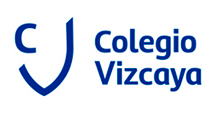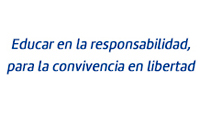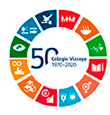


Educación Primaria
En Educación Primaria se continúa con el desarrollo integral de las capacidades del ser humano, proceso ya iniciado en Educación Infantil, así como, el mayor logro de las competencias básicas que se continuarán trabajando en Secundaria y que necesitará a lo largo de su vida para su realización y desarrollo personal, la ciudadanía activa y la inclusión social.
En esta etapa es fundamental la adquisición de habilidades sociales, hábitos de trabajo y responsabilidad individual, y del nivel requerido en las diferentes áreas, que le permitirán ampliar estos conocimientos y destrezas en la etapa Secundaria.
Para ello, la organización de aulas y espacios permiten la adaptación a las diferentes actividades que se van desarrollando. Se trata de aulas amplias y flexibles, dotadas de materiales de desarrollo y recursos didácticos y tecnológicos que permiten el acceso a todas las áreas del conocimiento.
También es parte del ambiente de aprendizaje el entorno, el bosque, el huerto escolar, los campos deportivos y de juegos, y la sociedad real que en forma de salidas culturales y convivencias les ayudan a comprender el funcionamiento del mundo.
TRATAMIENTO DE LAS LENGUAS Y METODOLOGÍA
En Educación Primaria realizamos un planteamiento trilingüe (Euskera, Castellano e Inglés), dando a las distintas lenguas un tratamiento integral. Partiendo de un modelo lingüísticos B, en el que además, introducimos el aprendizaje del inglés, que como tercera lengua ya se inició en la Escuela Infantil. El tratamiento integrado de las lenguas es una estrategia metodológica que se basa en la transferencia de los aprendizajes en distintas lenguas, a través de distintas áreas curriculares para el logro de una competencia comunicativa plurilingüe.
Pretendemos lograr que los alumnos realicen los aprendizajes necesarios de forma crítica y creativa, procurando que el proceso de enseñanza y aprendizaje resulte gratificante. De esta manera favorecemos el desarrollo integral de la persona y el logro de la propia autonomía y de la identidad personal y social.
Primaria es la etapa del razonamiento, de la imaginación y del desarrollo intelectual y moral.
Desarrollamos metodologías activas, donde el NIÑO es el principal protagonista de su aprendizaje, atendiendo individualmente a cada alumno y respetando su proceso evolutivo para potenciar el talento y consolidar la autonomía y la capacidad de iniciativa.
La innovación es un apartado que tiene gran importancia en esta etapa, reflejo de ello son las nuevas metodologías integradas. Buenos ejemplos de ello son la Metodología Científica CV-XXI, el Aprendizaje Cooperativo y el uso de iPads en formato 1:1.
La Metodología Científica CV-XXI iniciada en Educación Infantil continúa en el primer ciclo de Primaria. El ambiente preparado, los materiales y diferentes recursos, y el rol del adulto favorecen el trabajo del niño, consistente en la autoconstrucción a partir de la experimentación y la exploración del entorno, mediante la práctica autónoma de las actividades que le han sido presentadas individualmente o en grupo.
A partir del segundo ciclo de Primaria introducimos el Aprendizaje Cooperativo. Los alumnos trabajan en grupos cooperativos donde todos están involucrados, participan igual y son responsables de su trabajo a nivel individual. Las destrezas de comunicación forman parte del día a día, así como, el desarrollo del liderazgo y las habilidades sociales son claves para regular su interacción.
En tercer ciclo de Primaria, las aulas están dotadas de pizarras digitales interactivas e iPads personales 1:1, con el fin de realizar una educación acorde con las directrices de la sociedad actual. El uso del iPad facilita el aprendizaje autónomo y por múltiples canales, favorece el desarrollo de la creatividad y permite acceder fácilmente a la información y almacenar todos los recursos y creaciones. De este modo, el uso de las nuevas tecnologías está presente en el día a día del alumno, posibilitando el desarrollo de la competencia digital.
UNIFORME
El uso de uniforme es obligatorio. A partir de este nivel y en adelante hasta 4º de Educación Secundaria consistirá en:
-
Camisa azul claro con corbata azul marino con topos blancos o niki azul claro modelo CV (manga corta o larga) sin corbata
-
Prenda exterior de abrigo azul marino
-
Medias, calcetines (por encima del tobillo) o leotardos azul marino
-
Zapatos negros
-
Zapatillas azul marino para estar en el aula (1o a 6o Primaria)
-
Complementos en azul marino
-
Jersey de chándal modelo CV para el colegio (sólo en horas de clase, comedor y recreos)
-
Pichi (cuerpo liso y falda tableada) con jersey (*) azul marino o falda tableada (*) con tirantes o pantalón en color gris (tergal)
-
Pantalón corto o largo en color gris(tergal) y jersey (*) azul marino de cuello en pico
(*) Jersey: con posibilidad de incorporar, de modo totalmente voluntario, el escudo del Colegio cosido en el brazo izquierdo.
(*) La falda deberá mantener siempre una largura discreta y decorosa conforme al desarrollo de hábitos de convivencia y disciplina escolar del P.E.C.
- Uniforme de Educación Física y Natación:
-
Camiseta blanca con ribete azul en el cuello
-
Pantalón corto azul marino
-
Deportivas (cualquier modelo y color)
-
Calcetines blancos
-
Chándal: es obligatorio para todo el alumnado que participa en competiciones deportivas del Colegio; para el resto es voluntario, si bien, en caso de utilizar chándal en las clases de Educación Física éste deberá ser el modelo del Colegio
-
o Natación: bañador, pantalón de baño de pata corta o slip, chancletas, gafas, zapatillas de baño o escarpines (uso recomendado), gorro de baño (a ser posible de silicona) y toalla. Todo ello en una bolsa de cuerdas de cualquier marca, color. Tenéis la posibilidad de adquirir traje de baño modelo CV, que sólo será obligatorio para las competiciones deportivas de Natación extraescolar. El Colegio dispone para la venta gorros de baño (4€)
HORARIO
El horario en el primer y segundo ciclo de Primaria es de 9:55 a 16:55, de 1er curso a 4º, ofreciéndose la posibilidad de acudir al aula matinal (de 8:30 a 10:00).
En el tercer ciclo, 5º y 6º curso de Primaria, el horario pasa a ser de 08:43 a 15:48 ofreciéndose la posibilidad de acudir al aula de estudio dirigido (de 15:48 a 18:00).
A partir del primer curso de Educación Primaria, el centro oferta una amplia variedad de actividades extraescolares que permiten complementar la educación de los alumnos. En los 4 primeros cursos el horario de estas actividades será de 17:00 a 18:00 y a partir de 5º curso de 16:00 a 18:00. Para todos los alumnos que cursan actividades extraescolares se oferta un turno adicional del servicio de transporte. (Para más información consultar apartado Actividades Extraescolares y Transporte).




 Calendario Escolar
Calendario Escolar